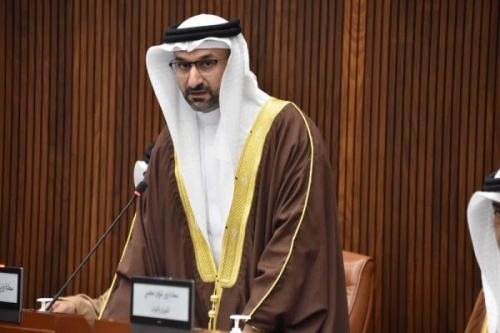Only Made-in-Bahrain Government commits to procure only ‘Made in Bahrain’ goods to reduce imports
TDT | Manama
Email: mail@newsofbahrain.com
Soon, “Made in Bahrain” goods will take center stage in government procurement, as the nation pushes to cut back on imports and supercharge local production.
The ambitious plan aims to showcase Bahraini industries, spotlight homegrown talent, and build a stronger, self-sufficient economy. The government has also zeroed in on key industries and products, conducting a thorough study to gauge the feasibility of this approach in partnership with factories across the Kingdom.
This move is grounded in new measures under the Industrial Sector Strategy (2022–2026), with Industry and Commerce Minister Abdulla Fakhro affirming the aim to strengthen local industries and draw in fresh investment.
This initiative was unveiled in response to a parliamentary question by MP Ahmed Sabah Al Salloom. At the heart of this effort is the In-Country Value (Takamul) programme, launched in August 2023. This programme grants companies an In-Country Value Added Certificate, a credential that, according to the minister, will give Bahraini-made products a competitive edge in future government contracts.
In addition, a similar agreement is in place with Saudi Arabia until September 2024, extending similar advantages to Bahraini goods under Saudi procurement guidelines.
Funds and Support
A BD 100 million fund, created in collaboration with the private sector, has been launched to fuel the growth of small and medium enterprises (SMEs). This initiative aims to spark new business ventures while boosting research, development, and manufacturing in cutting-edge sectors.
Adding to this, the Green Factory Label initiative encourages eco-friendly practices, such as waste reuse, renewable energy adoption, and pollution reduction. Factories that meet the standards receive financial support, operational guidance, and training opportunities. This is all part of Bahrain’s larger ambition to achieve carbon neutrality by 2060.
The ministry is also teaming up with Tamkeen on the iFactories programme, which assesses how prepared local manufacturers are to adopt automation and advanced technologies. The goal of this initiative is to drive up productivity and efficiency across the sector.
35% Local Content
Since 2020, the “Made in Bahrain” programme has been championing local products by granting a national mark to those with at least 35 per cent local content.
Minister Fakhro also spotlighted Bahrain’s active role in the Integrated Industrial Partnership for Sustainable Economic Development, alongside the UAE, Jordan, Egypt, and Morocco. This alliance aims to foster collaboration among manufacturers and strengthen supply chains throughout the region.
Efforts to build stronger trade links with Gulf Cooperation Council countries and other economic blocs are also in motion. These initiatives are designed to lower costs, improve access to raw materials, and broaden market opportunities for Bahraini products.
Fakhro underscored the crucial role of cooperation between the government and Parliament in driving these efforts forward. “We are working together to build a more robust industrial sector that contributes more significantly to Bahrain,” he affirmed.
Related Posts


